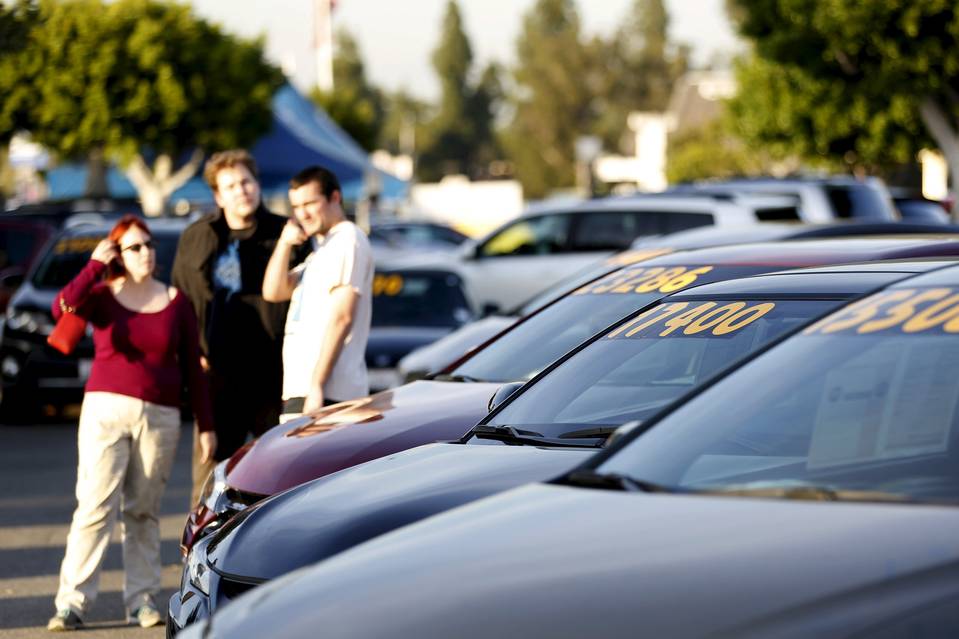
Brett Howard walked into Galpin Ford in North Hills, Calif., on Black Friday to buy the first new car of his life. He drove away in a black Mustang coupe, one of the hottest models in U.S. showrooms.
The 27-year-old’s $31,000 purchase is as much about efficiently traversing Point A to Point B as it is about taking a joy ride. The car’s four-cylinder turbo can achieve 31 miles per gallon on the mountain highways he travels for a job—food and beverage manager in the hotel industry—that has him driving thousands of miles a month.
“I love driving,” Mr. Howard said, noting his peers are the same way. The best man at Mr. Howard’s recent wedding bought a new Lexus sedan about the time of the Mustang purchase.
Auto makers on Tuesday reported the highest annual sales volume in the industry’s 125-year history, indicating America’s affair with the automobile is as potent as ever. With average vehicle ages at record highs, loans relatively cheap and gasoline prices at six-year lows, most analysts and dealers expect 2016 to be even better and many have backed off their expectation for plateauing in 2017.
Before calling the current environment an abnormal blip built on abnormal factors, consider Mr. Howard. The Californian is at the heart of the debate captivating an auto industry increasingly convinced that young people are going to give up on conventional cars, particularly on America’s coasts.
Mr. Howard said he isn’t a candidate for ride sharing or shuttling services like Uber Technologies Inc. Buying his first used car at 14 and fixing it up in the two years before he could drive, he feels one of the few places to “release your mind” is behind the wheel.
The data suggest a lot of people feel the same way even if escalating student-debt levels andmigration to urban city centers are somewhat delaying new-car purchases among people under 40. Wall Street, however, is giving a lot more credit to companies doing everything but selling cars, and Detroit is forced to respond.
[“source-wsj”]





